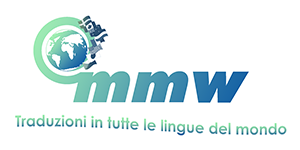Lingala
Lingala is one of the principal languages spoken in the Democratic
Republic of Congo (DRC), (Congo-Kinshasa), and the Republic of Congo
(Congo-Brazzaville). The Lingala of today is based on Bobangi, spoken
by the people (bangala) who lived along the Congo River between Lisala
and Kinshasa. Bobangi was the regional trade language until the arrival
of the Europeans in the late nineteenth century.
The colonial administration needed a common language for the region and
started to use the language for missionary and administrative purposes,
calling it Bangala to set it apart from Bobangi. Compared to local Bantu
languages, its sentence structure, word structure and sounds were simplified
and its speakers freely borrowed words and constructions from other languages
they knew. It became the language of the army, police, administration, education,
politics, media, and missionaries.
Lingala language can be divided into four variations: Standard Lingala,
Spoken Lingala, Kinshasa Lingala, and Brazzaville Lingala.
Standard Lingala is mostly used in educational and news broadcasts on radio
or television, in religious services in the Catholic Church and is the language
taught as a subject at all educational levels. Standard Lingala is historically
associated with the work of the Catholic Church and its missionaries. It is
largely used in formal functions.
Spoken Lingala is the variation mostly used in the day-to-day lives of Lingala
speakers. This variation of Lingala is historically associated with the work of
Protestant missionaries. Spoken Lingala is largely used in informal functions,
and the majority of Lingala songs use Spoken Lingala over other variations. Modern
Congolese music, called soukous, is one of the most popular in Africa and is a true
source of enrichment of the language.
Kinshasa Lingala and Brazzaville Lingala are the dialects from the capitals of
both Congos. They are both heavily influenced by other Bantu languages as well as
French (the official language of both countries). They both have many borrowed words
from those languages, as well as a simplified phonology and grammar. Over 10 million
people speak Lingala.
Information supplied by http://dictyon.net
Lingala was first written by missionaries in about 1900. Today there are
various ways to write it, all of which use the Latin alphabet.
There is no standard spelling system and literacy in Lingala is low
among Lingala speakers.
Lingala pronunciation

Lingala has four tones which are sometimes indicated in writing as follows:
- no accent for default tone, the low tone
- acute accent <á> for the high tone
- circumflex accent <â> for descending tone
- caron <ǎ> for ascending tone
Sample text
Bato nyonso na mbotama bazali nzomi pe bakokani na limemya pe makoki.
Bazali na mayele pe base, geli kofanda na bondeko okati na bango.
Translation
All human beings are born free and equal in dignity and rights. They are
endowed with reason and conscience and should act towards one another in
a spirit of brotherhood.
(Article 1 of the Universal Declaration of Human Rights)
![]()
Language
courses for Lingala (en français)
Links
Information about Lingala, including listening comprehension materials and Lingala-English crossword puzzles
http://dictyon.net/lingalamaterials.html
Information about the Lingala language
http://en.wikipedia.org/wiki/Lingala_language
Online Lingala lessons (in French)
http://perso.orange.fr/pascal.grouselle/
